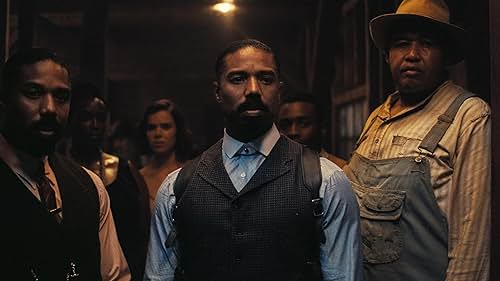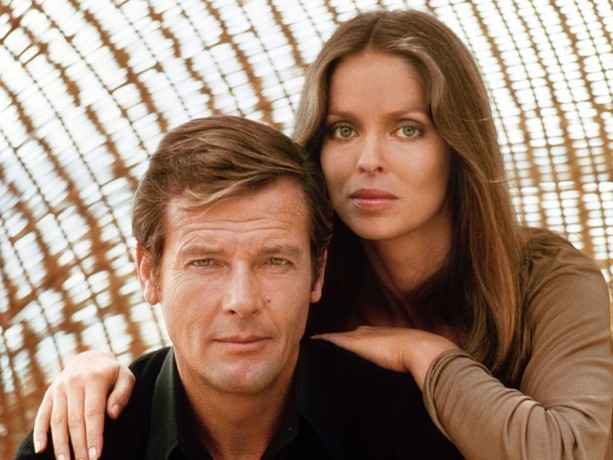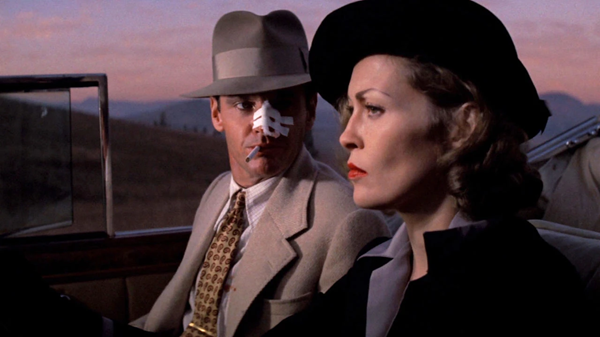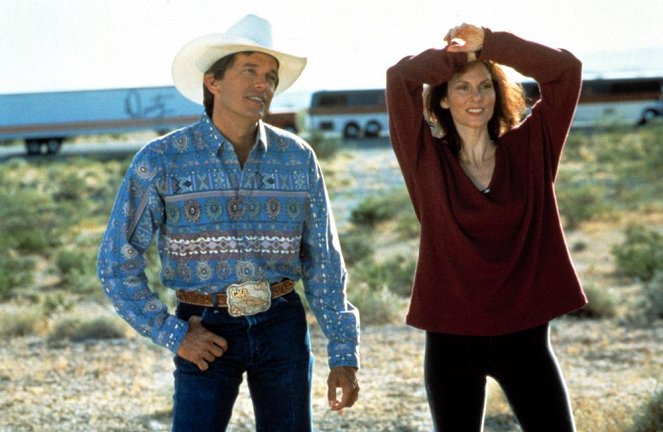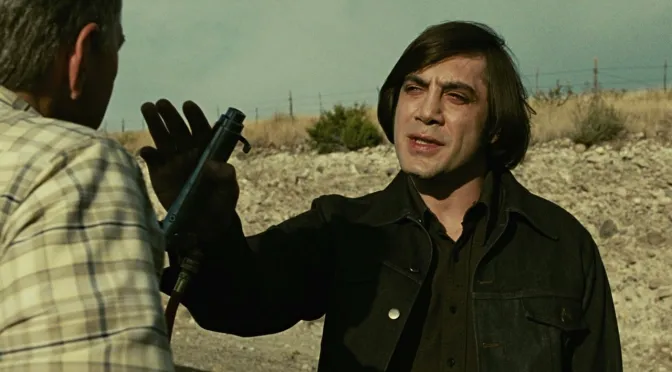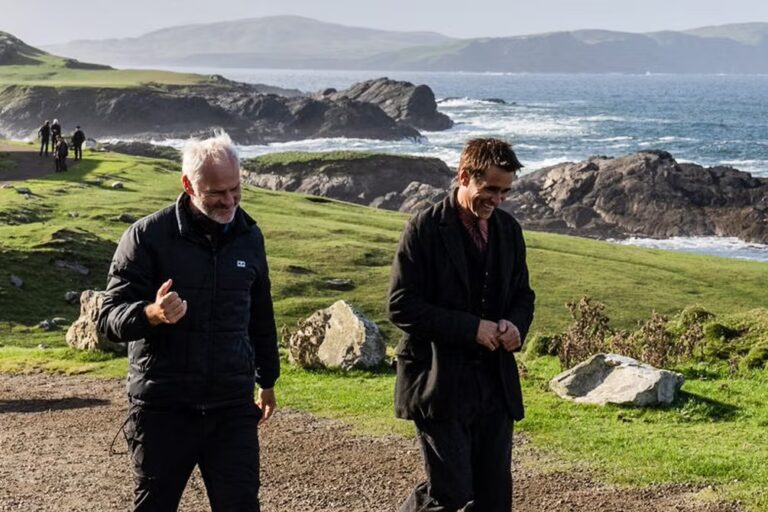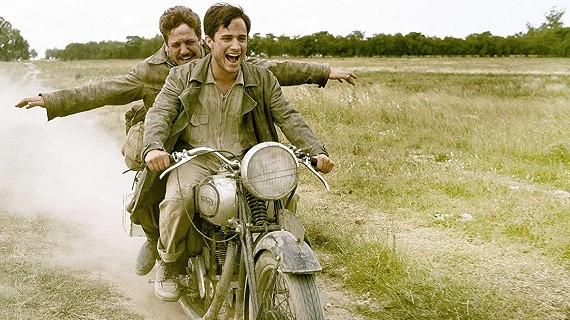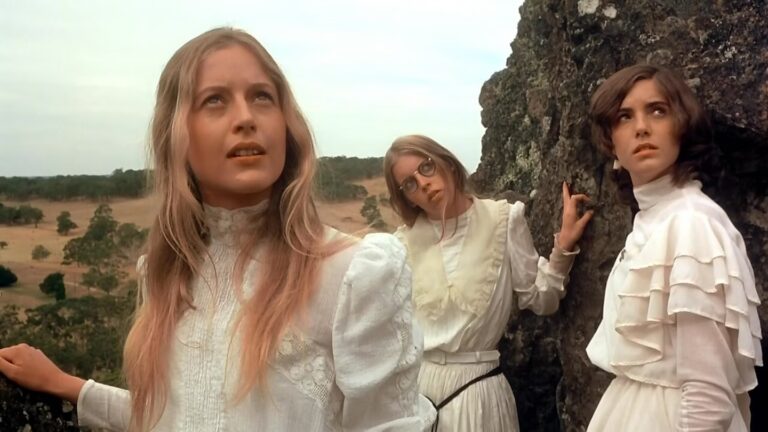The Coen Brothers deliver one of their most compelling films with No Country for Old Men, a stark and haunting adaptation of Cormac McCarthy’s novel that examines the unrelenting grip of violence, the nature of fate, and the struggle of men caught in a world spiraling into chaos.
Set in the unforgiving deserts of Texas, the story revolves around Llewelyn Moss (played by Josh Brolin), a
Vietnam War veteran who stumbles upon a botched drug deal and a suitcase filled with cash. Rather than leave well enough alone, he decides to take the money, setting off a brutal, life-altering chase. His pursuit of freedom and wealth quickly becomes a nightmarish ordeal as he is relentlessly pursued by the cold, methodical Anton Chigurh (masterfully portrayed by Javier Bardem), a hitman with an almost supernatural sense of justice.
Chigurh’s method of “deciding fates” with a coin toss is one of the most chilling, unforgettable aspects of the film. His blank-faced determination to impose his own twisted moral order on everyone he encounters is both unsettling and mesmerizing. Bardem’s performance is terrifying in its quiet intensity, making Chigurh one of cinema’s most unforgettable villains.
Amidst the brutal violence, Tommy Lee Jones shines as Sheriff Ed Tom Bell, the film’s moral anchor. Bell is an aging lawman struggling to make sense of the violent, senseless world around him. His contemplative monologues, reflecting on the lost ideals of justice, bring a sobering depth to the narrative. His character represents the emotional heart of the film, embodying the exhaustion and resignation of a man who has witnessed too much suffering.
The cinematography by Roger Deakins plays a vital role in amplifying the film’s mood. The vast, empty landscapes serve as a stark metaphor for the emptiness and inevitability of the violence that consumes the characters. The use of silence is also deeply effective—at times, the film’s quiet, suspenseful pacing heightens the sense of dread, making every moment of violence feel inevitable and irreversible.
Thematically, No Country for Old Men is a meditation on fate, morality, and the relentless march of time. The Coens explore the senselessness of violence and the futility of trying to escape it. There’s a profound tension between the past and present, embodied by Sheriff Bell’s internal struggle to reconcile his sense of justice with the increasingly chaotic world around him.
In conclusion, No Country for Old Men is a suspenseful, thought-provoking, and deeply haunting thriller that examines the darker side of human nature. With standout performances, brilliant direction, and a script that captures McCarthy’s bleak, poetic vision, it’s a film that stays with you long after the credits roll.
